
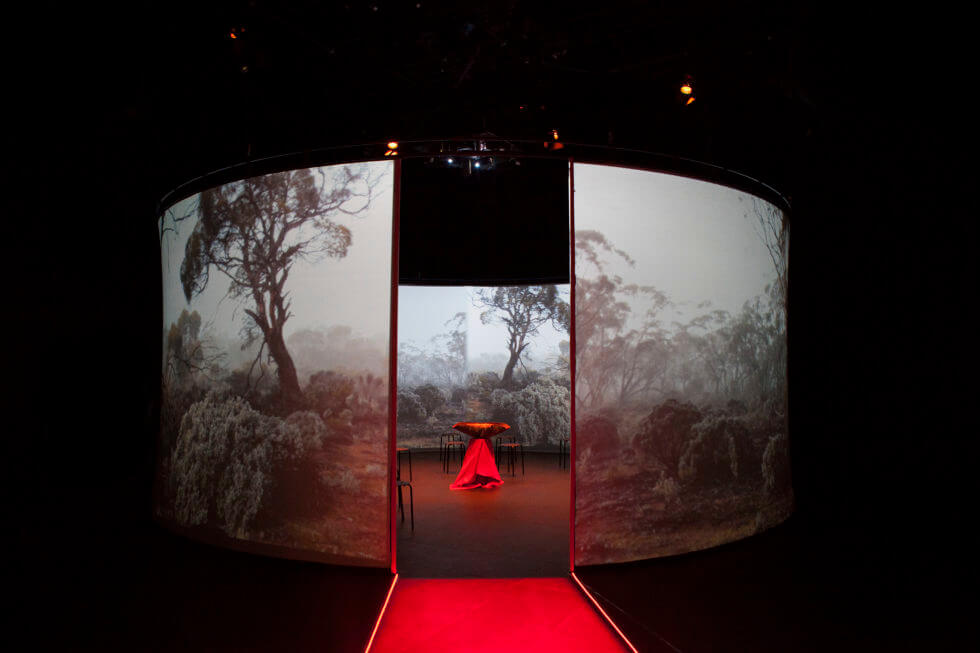
Paul Frederick Brown, University of New South Wales
"Involving over 50 creative artists – Alphaville Arts produced multi-arts storytelling by atomic survivors – indigenous communities, service personnel and civilians affected by atomic testing. Includes two immersive projections: • 'Ngurini' (searching) – forced relocation and intergenerational response of Pitjantjatjara Anangu after Britain‘s atomic testing at Maralinga in South Australia. • '10 Minutes to Midnight' – re-imagining the Maralinga experiments using archival material and surround sound. 'Nuclear' explores 'unruly' elements of the A-bomb and ongoing experimentation that plays out in the changed lives of survivor communities and environments; also contextual knowledge and art-politics of the recent South Australian Royal Commission into nuclear industry."
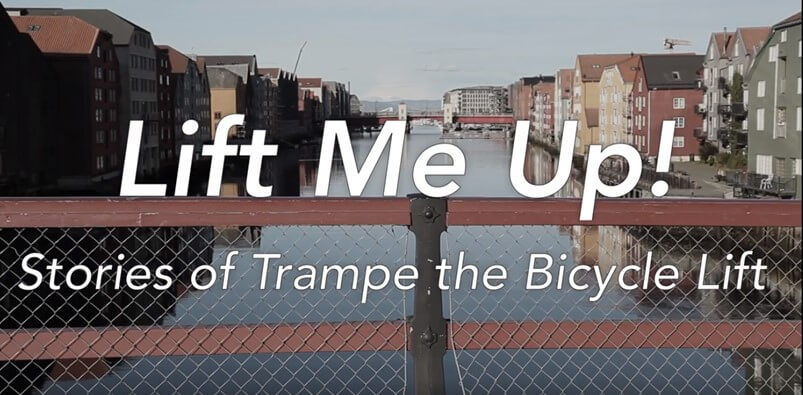
Lina Ingeborgrud;
Lina Ingeborgrud; Ivana Suboticki, Norwegian University of Science and Technology; Vivian Anette Lagesen, NTNU; Jonas Hustad, Brillefilm
"'Lift me up!' Engaging publics through film We intend to experiment with our short STS documentary entitled ’Lift me up! A story about Trampe the bicycle lift‘. The goal of the film is to introduce STS concepts, such as domestication, through an engaging case study. We want audiences to watch the film and explore how watching instigates further analysis and debate about technology and society relations."
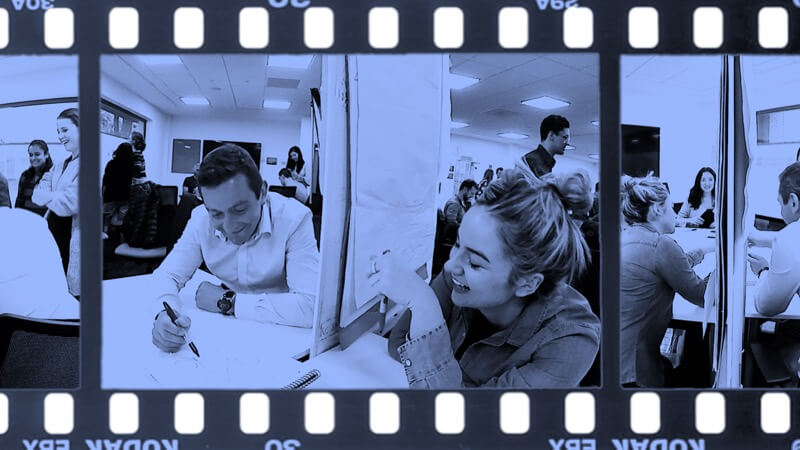
Allen Higgins, University College Dublin
"Involving over 50 creative artists – Alphaville Arts produced multi-arts storytelling by atomic survivors – indigenous communities, service personnel and civilians affected by atomic testing. Includes two immersive projections: • 'Ngurini' (searching) – forced relocation and intergenerational response of Pitjantjatjara Anangu after Britain‘s atomic testing at Maralinga in South Australia. • '10 Minutes to Midnight' – re-imagining the Maralinga experiments using archival material and surround sound. 'Nuclear' explores 'unruly' elements of the A-bomb and ongoing experimentation that plays out in the changed lives of survivor communities and environments; also contextual knowledge and art-politics of the recent South Australian Royal Commission into nuclear industry."
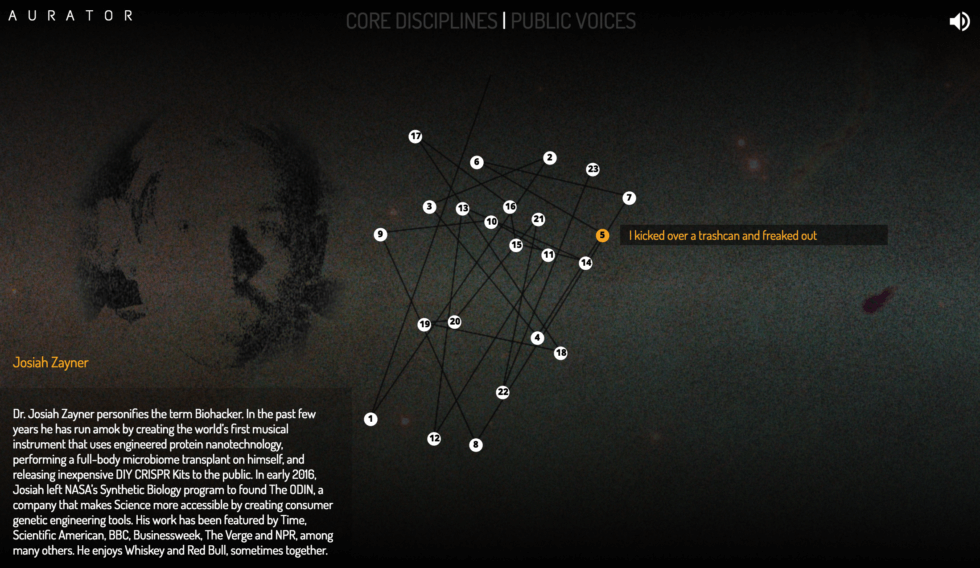
Britt Damm Wray, University of Copenhagen
Aurator (www.aurator.org), is an interactive web platform for listening and speaking back to the privately recorded audio diaries of multidisciplinary experts who work in synthetic biology. Aurator emerged from Britt Wray's PhD research at the University of Copenhagen that focuses on the role of affect and emotion in how science communication events unfold. In this experiment, several natural scientists, a social scientist, an artist, a biohacker, an entrepreneur, a watchdog, and a bioethicist were each sent an audio recorder in the mail as well as an open-ended question once a week for twelve weeks that asked them to reflect on their feelings towards synthetic biology, which users can listen and respond to with audio recordings of their own on the interactive platform. This is where science communication gets intimate.
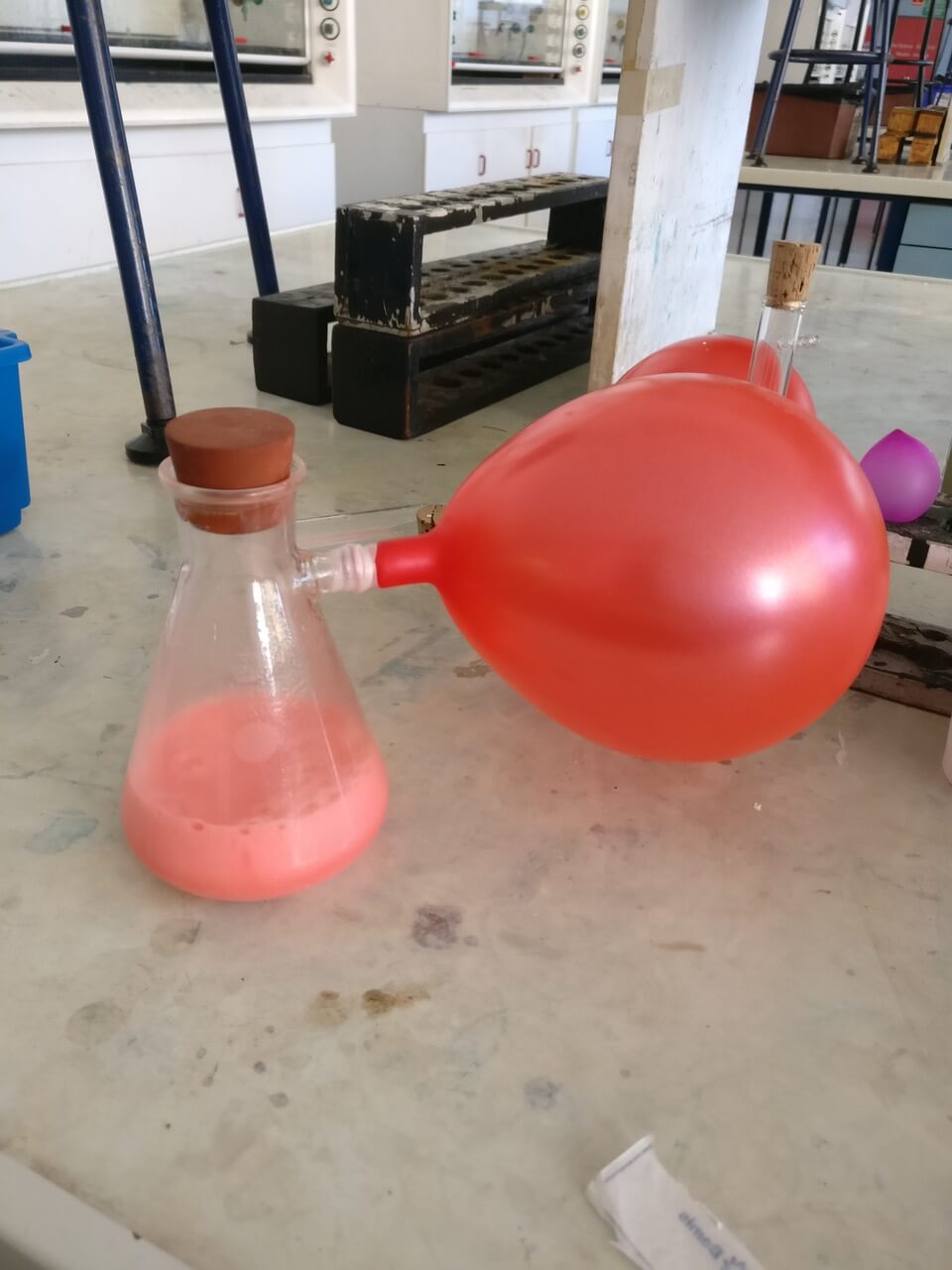
Alice Williamson, The University of Sydney; Annabelle Buda, The University of Sydney
"Science and technology are practical subjects and demonstrations and experimentation go hand-in-hand with theoretical subject knowledge. Time pressures, limited resources and low confidence are among reasons cited for minimal practical content in schools. Inspired by the success of ’meal kit‘ services that deliver subscribers food ingredients and recipes for preparation into fresh meals, The Modern Chemistry Set team have done the same for science. We are building a ’science kit‘ service for primary school teachers with ’ingredients‘ and ’recipes‘ that are ready to be cooked up into a nourishing inquiry-based science lesson."
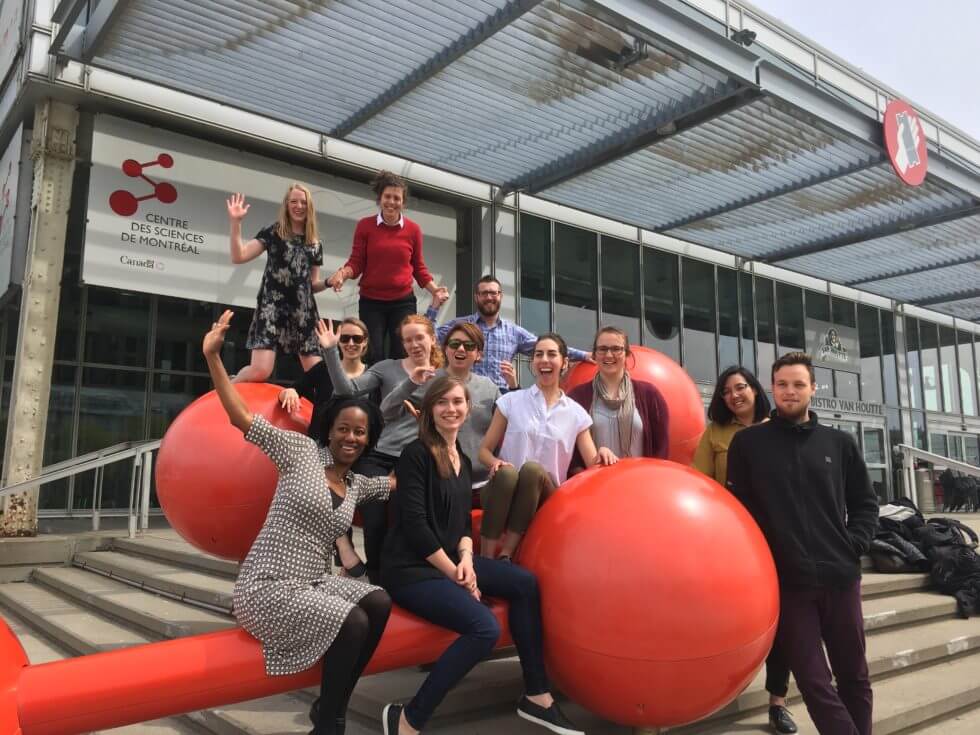
Eric Kennedy, Consortium for Science, Policy, and Outcomes – Arizona State University; Matthew Harsh, Concordia University
Science Outside the Lab North offers an eight-day immersion into the world of science policy for graduate students of all disciplines. The program is built around five days of in-depth, in-person interactions with actual policy makers, museum curators, science journalists, and politicians. In this session and discussions, we reflect on the difficulties of engaging these professionals in candid, open dialogue about their experiences and views; the use of modified Chatham House Rules as a pedagogical strategy; and the ongoing challenges in using these rules to support effective learning.
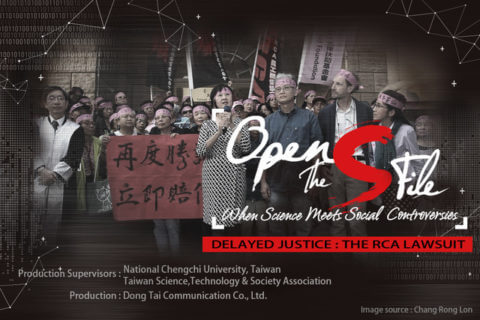
Wen-Ling Tu, Wen-Ling Hong, Yi-Ping Lin, Shiang-Yao Liu, Hsin-Hsing Chen, Chen-Yung Lin, Chung-Hsi Lin, Yuan Yuan
In a groundbreaking decision in 2015, the court of law found one of the largest transnational high-tech companies of the 20th century liable for workplace chemical exposure of its former employees during its operation in Taiwan between 1969 and 1992 that has caused cancers and other serious health damages.
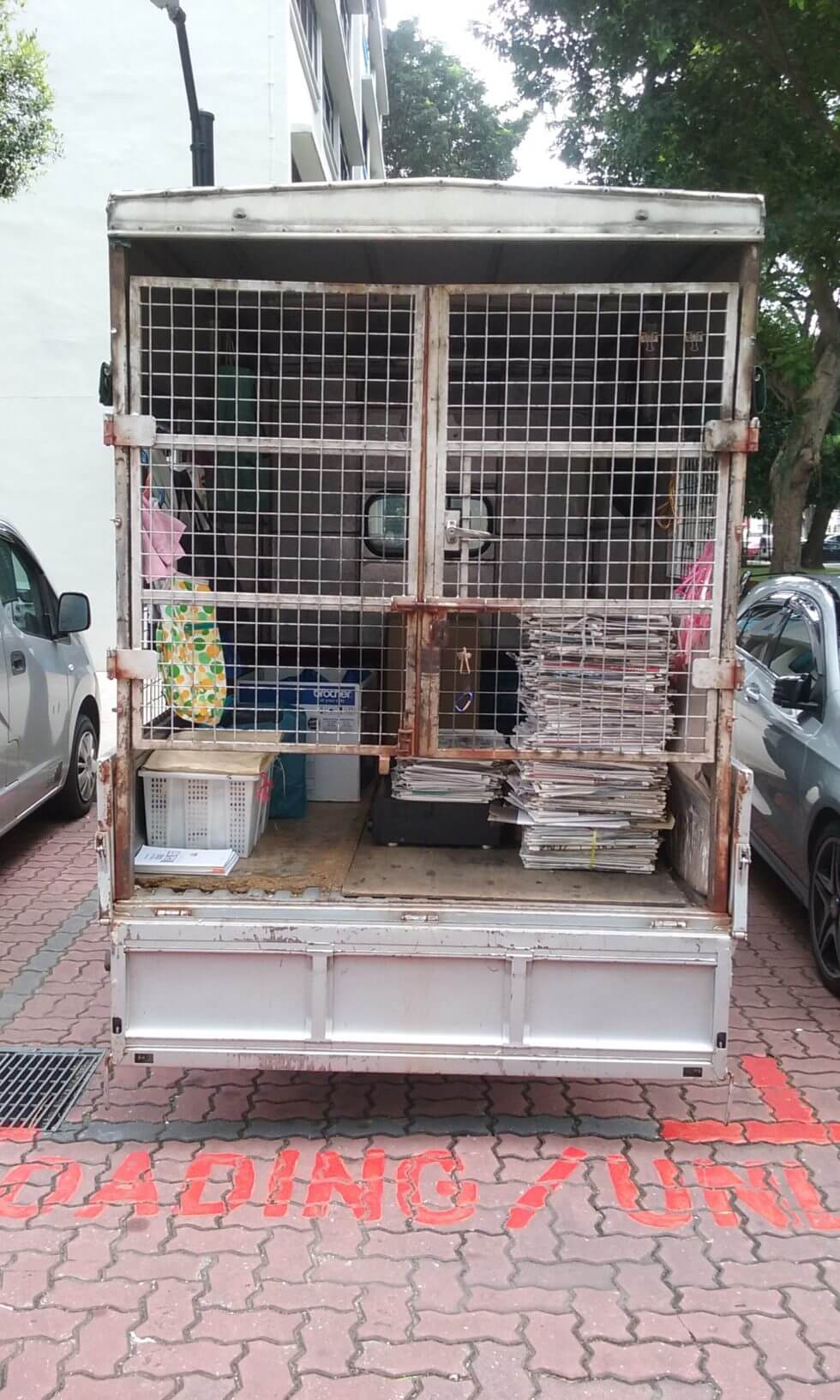
Lyle Fearnley, Singapore University of Technology and Design
Singapore's last remaining landfill on Semakau islland will be full in 2035. Two decades ago, the government introduced a National Recycling Program to increase domestic recycling rates, yet recycling remains low. However, Singapore also has a longstanding informal recycling sector, known as karang guni (Malay for 'gunny sack'). Modernization narratives suggest that large-scale, centralized, big-technology--such as Material Recovery Facilities (MRFs)--will outperform and replace the informal karang guni. This presentation describes an experiment drawing on participatory design practices to introduce a mobile app platform into the karang guni system. A collaboration between anthropologists and engineers, the experiment will test how digital technologies might transform informal recycling networks, challenging the inevitability of trajectories toward big technology and tracking how digital technologies transform informal recycling networks.
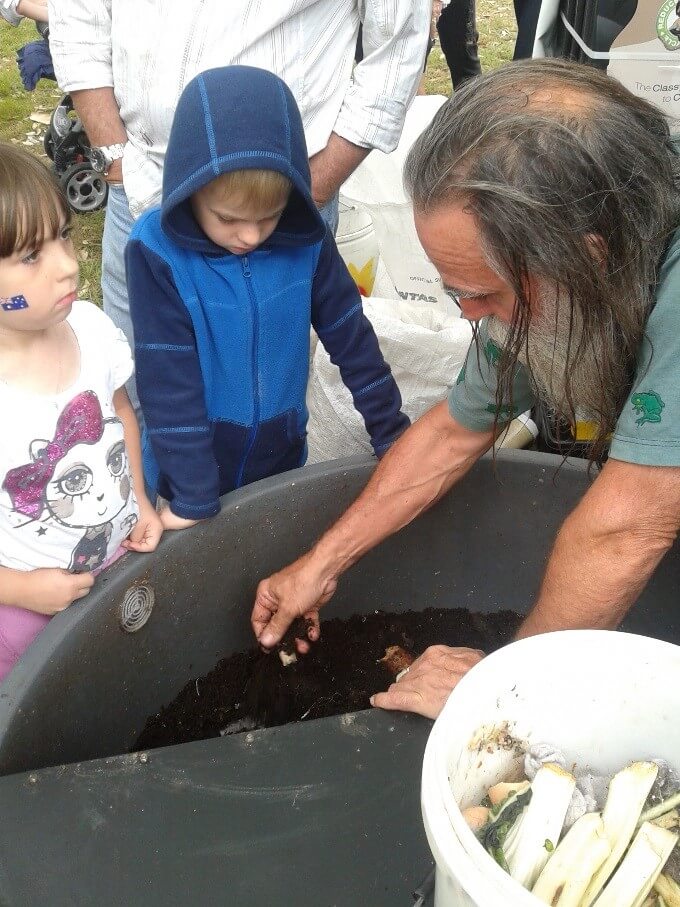
Anne O‘Brien, Australian Catholic University
In my interactive exhibit I invite participants to examine how organisms that create soil and mediate decomposition become evident, through intentional or unintentional means. Using magnification tools and pictures, as well as by compiling stories of mishaps in which compost efforts have gone wrong, I seek to inventory different kinds of encounters that make evident the interface between humans and the organisms that we depend upon in decomposition and the production of soil. How does this relationship become ethically charged? When might it inspire recognition and care?
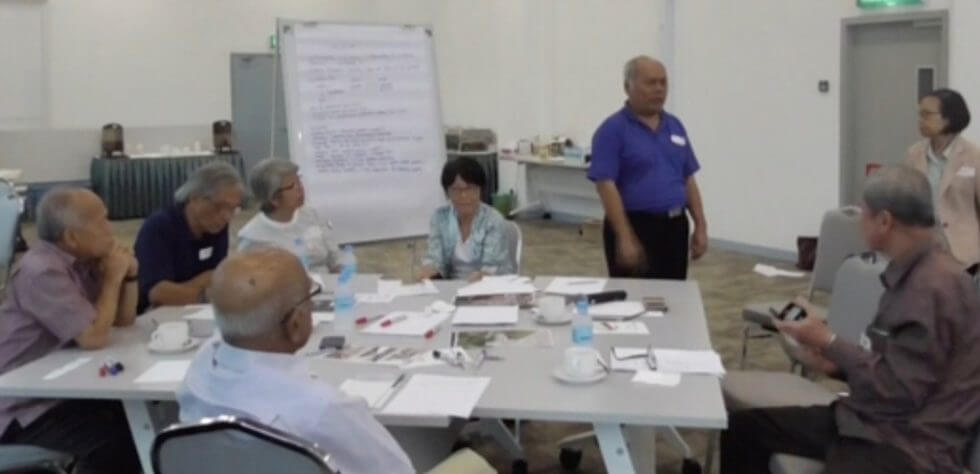
Clarissa Ai Ling Lee, Emmanuel Tsekleves, Lau Sian Lun, Sabir Giga, Hwang Jung Shan, and Yong Min Hooi
A multi-modal digital performance and accompanying poster will showcase the making and doing process that the Imaginaging team from Malaysia and Lancaster have deployed into a research project on healthy aging in an urban setting. The presentation will showcase the development of situated expertise and situated knowledges in relation to other forms of knowledge and interactional expertise; this is done through the deployment of the end product of design fictions co-created with the subjects of the research project. The overall presentation intends to capture both the affective and creative labour of the researchers and research subjects.
Remote Knowledge and Engagement
Julian Rutten, The University of Swinburne
What does it mean to be in-place within the technosphere? This research explores the potential for interactive and embedded technologies to meaningfully engage citizens with contemporary ecosystems and ecological processes. Understanding a place is a unique combination of social, technical, natural, and political arrangements. Distributed sensors, machine learning algorithms, and community engagement enhance our ability to understand the complexity that occurs at a local scale. This research explores the potential for these methods to enhance existing practices of ecological restoration.
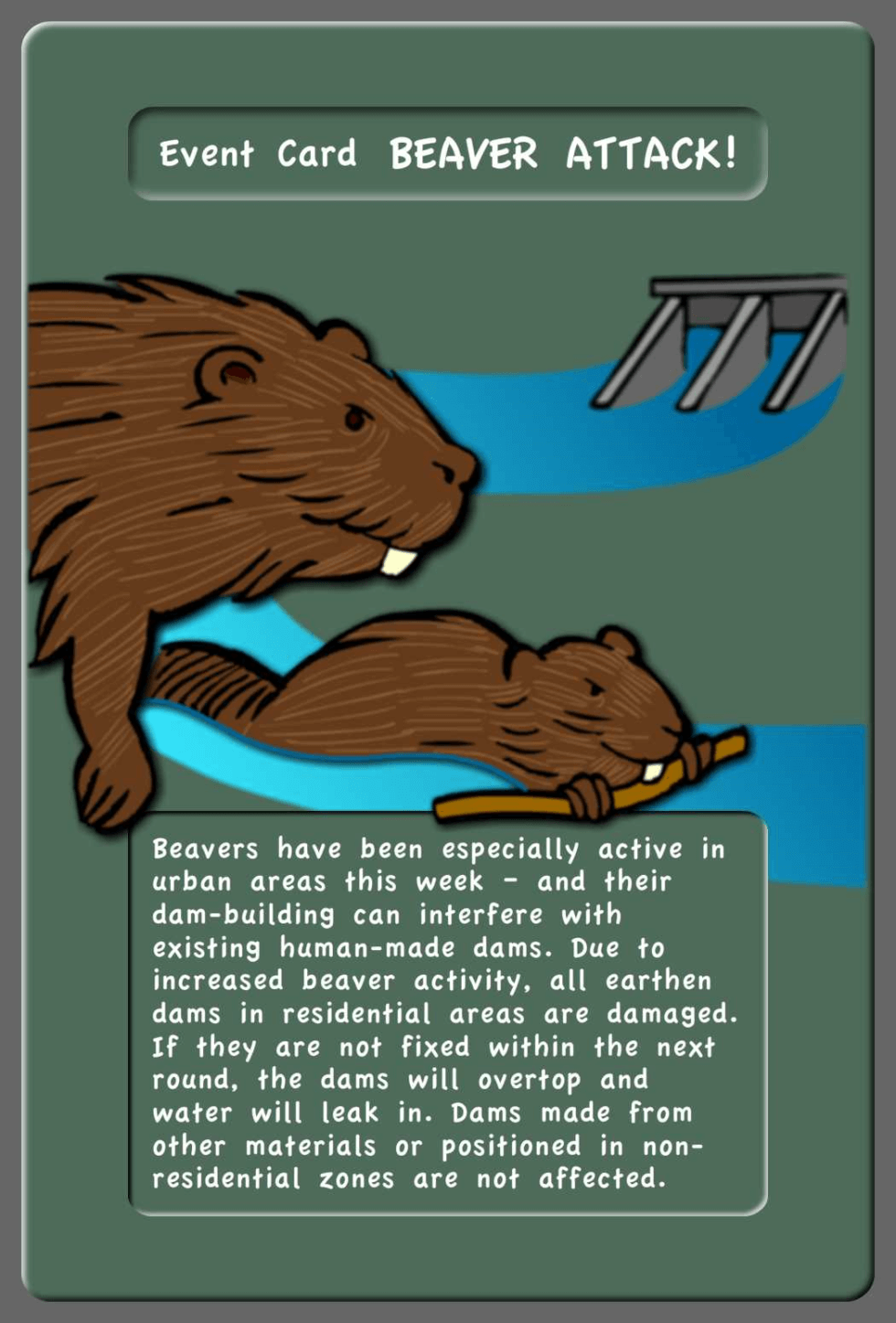
Sally Wyatt, Department of Technology and Society Studies, Faculty of Arts and Social Sciences, Maastricht Univer; Alexandra Supper, Maastricht University
We explore the medium of a board game as a way of introducing pre-university students to some of the core ideas of the social construction of technology (SCOT). The objective of the game is for different relevant social groups to work together (or not) to build dams in the Netherlands. During the conference, we will display a (not yet playable) game prototype. Conference participants will be invited to generate further ideas for characteristics of relevant social groups and for events that will affect the definition of the problem to be solved, the interpretative flexibility of different solutions and closure mechanisms.
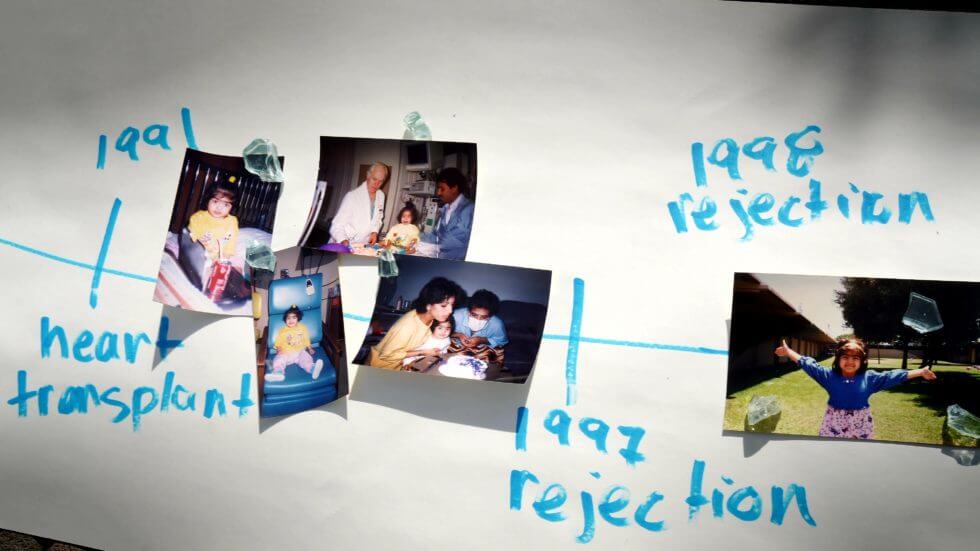
Nadine Tanio;
Nadine Tanio, UCLA, Graduate School of Education and Information Studies
My work explores how young heart transplant patients envision, articulate and navigate their transition from pediatric to adult medical care, from childhood to adulthood. I share work from an ongoing collaborative youth media research project that explores how young people transition, translate, and transform their personal experiences to shared situated knowledge. Through video shorts crafted to teach others (peers, medical and family caregivers, other transplant patients and educators) and a discussion of storytelling practices, I reflect on how narratives of positionality, of practice, and of pedagogy create communities for learning and living within the transitory spaces of high-tech modern medicine.
Transforming the standard blackbox of time
Barbara Bok, Swinburne University of Technology
With this prototype exhibit I want to intervene in the invisible but ubiquitous work that is constructing contemporary (standard) time that is embedded in STS scholars‘ practices and the phenomena they study. It is part of my project of transforming people's relationships with the future by generating opportunities for remaking the work of standard time. An array of displays of time-making accounts makes the work of constructing and imposing standard time perceptible. Activities stimulate participants to identify characteristics of standard time, examine and reflect on the effects of different time-constructing practices, and uncover unacknowledged assumptions and effects as they explore new time-making practices.
